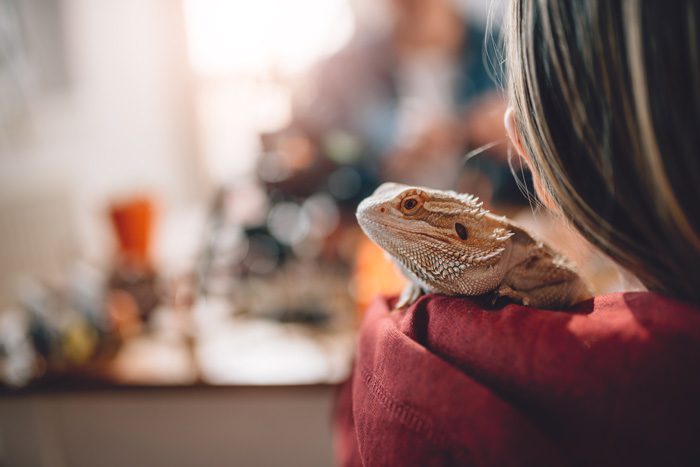Imagine the ideal best friend.
Think about what sorts of traits would make this friend so ideal. They would be a good listener, naturally. And they would never be judgmental or try to tell you what you should do about your problems. They would always be happy to hang out with you. This wonderful friend would always be on your side, and their love would be unconditional.
Oh, and one more thing. There’s a good chance they will be furry.
You knew we were talking about a pet, right?
Pet Therapy
If you already have a pet—a rambunctious dog, an aloof cat, a chatty bird, a bouncy bunny, a mesmerizing fish, or a long-tongued lizard—you probably already understand the ways in which a pet can be a comforting companion. But whether you currently have a pet or not, it is worth exploring the various ways in which a loyal and loving animal (and who says a lizard can’t be loving?) can support your mental health.
Before we proceed, however, we need to be clear about one thing.
Having a Pet Is a Serious Commitment
Before bringing an animal into your home, you’ll want to consider a number of factors. For example, is anyone in your house allergic to (or afraid of) the type of pet you are considering? Does your home have enough space for an animal—inside and, in some cases, out? If you rent your living space, are you allowed to have animals on the property? Do the expenses related to owning a pet—food, vet care, toys, carrying cases, and much, much more—fit into the family budget? How do you feel about cleaning up after a pet? And is there a reliable and ethical source, like a rescue shelter, where you can find animals in your community?
Our point here is no doubt obvious: You should not bring a pet of any kind into your home on a whim. Having a pet is a long-term commitment and it isn’t always easy, convenient, fun, or inexpensive.
That said, a pet truly can be a helpful support for your mental well-being.
The Paws-itives of Pet Therapy
Generally, when we are playing with or petting a pet, we probably are not thinking too much about brain science. But studies show that these kinds of activities can help lower the levels of cortisol and boost the levels of oxytocin in the brain—less cortisol and more oxytocin are associated with lower stress levels and increased feelings of relaxation. And the benefits are not confined to our brains. Petting an animal is associated with lower blood pressure levels.
Having a pet is also a great way to ward off loneliness, avoid boredom, and—in some cases—lead to increased physical activity. All three of those things are good for your mental health. And you can’t forget the fact that our pets listen to us with judgment and without offering advice. Sometimes, that is exactly what we need when we are struggling with difficult emotions or the symptoms of a mental health disorder.
Alternatives to Bringing a Pet Home
Maybe we have convinced you that having a pet would be of benefit to you. But what if you read our list of questions above and realized that you are not in a position to bring a pet into your home right now?
Happily, there are some alternatives. For example, you could volunteer at an animal shelter. You would get plenty of time with—and the same benefits from—the animals at the shelter. And you would have the satisfaction of knowing you are helping animals find their forever homes. You might also boost your mental well-being by getting out into nature where you can observe and enjoy animals in their natural habitat. It can even be beneficial to arrange to hang out with friends who have pets so that you can take advantage of the benefits animals provide just by being around and being themselves.
We Can Help Build a Foundation for Good Mental Health
At Johnstown Heights Behavioral Health, we are committed to helping people improve their mental health and maintain those improvements over time. We know that every individual we serve is unique, and so we listen intently and then employ our expertise and experience to create personalized treatment plans. Whether you are struggling with depression, anxiety, a trauma-based disorder, or another mental health challenge, we can help you move forward in healthy, positive ways.







